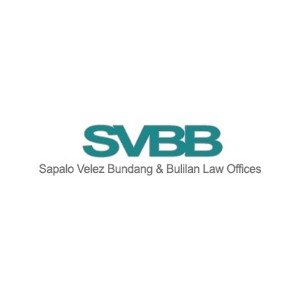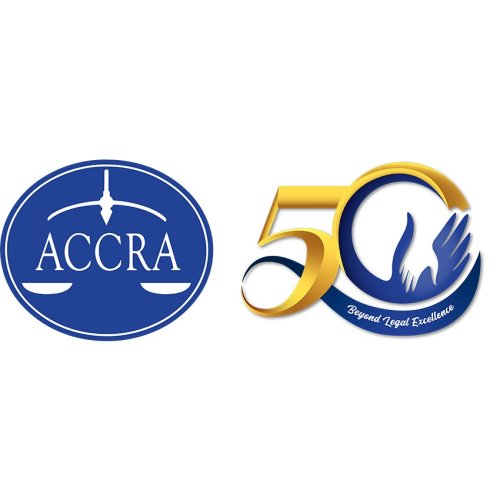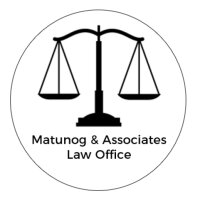Best Banking & Finance Lawyers in Davao City
Share your needs with us, get contacted by law firms.
Free. Takes 2 min.
List of the best lawyers in Davao City, Philippines
Philippines Banking & Finance Legal Questions answered by Lawyers
Browse our 2 legal questions about Banking & Finance in Philippines and read the lawyer answers, or ask your own questions for free.
- Is an OFW /expatriate in UAE with an existing bank loan can have a travel ban order in our country?
- I was an OFW in UAE and was included in a company mass termination. I haven't finished my bank loan and my computed gratuity was not enough to settle my loan so upon getting the email I exited UAE to another country & after a year went back to Phil.... Read more →
-
Lawyer answer by Islaw - Expert Lawyers
Hi, there may be a helpful answer of your querry. Unpaid personal loans or credit card debt (even if it's from a UAE bank) are considered civil cases, not criminal offenses under international law. Interpol is usually involved only for...
Read full answer - Is it really possible to collect a debt thru filing a case?
- I am planning a case against a friend who has multiple swipes on my credit card but failed to pay me. Initially, she was a good payer but something happened and she stopped paying me. The total number of swipes was a huge amount. I also have an investment in... Read more →
-
Lawyer answer by Starlion Legal
What country are you in? Yes, you can make a claim in court for this in a small claims court.
Read full answer
About Banking & Finance Law in Davao City, Philippines
Banking & Finance law in Davao City, Philippines encompasses the legal framework and regulations that govern financial transactions, institutions, and activities. It addresses matters such as banking operations, lending, consumer protection, investments, and regulatory compliance. These laws aim to promote stability, transparency, and fairness in the banking and financial sector.
Why You May Need a Lawyer
There are various situations where you may need legal help in the field of Banking & Finance in Davao City, Philippines:
- Resolving disputes with financial institutions
- Filing complaints against unfair banking practices
- Negotiating loan agreements or restructuring debts
- Understanding your rights and responsibilities as a borrower or lender
- Seeking legal advice for investments or financial transactions
- Complying with regulatory requirements
Local Laws Overview
Local laws in Davao City, Philippines that are particularly relevant to Banking & Finance include:
- The Philippine Banking Act
- The General Banking Law
- The Magna Carta for Micro, Small, and Medium Enterprises (MSMEs)
- The Securities Regulation Code
- The Consumer Act of the Philippines
These laws provide a legal framework for banking operations, capital requirements, credit transactions, investments, consumer rights, and financial market regulations.
Frequently Asked Questions
1. Can a bank foreclose on my property without notice?
No, banks in Davao City, Philippines are required to provide proper notice before initiating foreclosure proceedings. There are specific legal steps that must be followed, and you have rights as a borrower to be informed and given a chance to address the situation.
2. What should I do if I suspect fraudulent activity by a financial institution?
If you suspect fraudulent activity by a financial institution, gather any evidence and documentation related to the incident. Contact a lawyer specializing in Banking & Finance law to help you file a complaint with the appropriate regulatory authorities and explore legal remedies.
3. What protections are in place for consumers against unfair banking practices?
The Consumer Act of the Philippines provides protections for consumers against unfair banking practices. If you believe you have been a victim of unfair practices, consult a lawyer to understand your rights and options for seeking redress.
4. Are there specific regulations governing lending to small businesses in Davao City?
Yes, the Magna Carta for Micro, Small, and Medium Enterprises (MSMEs) provides specific regulations and support for lending to small businesses in Davao City, Philippines. These regulations aim to promote access to finance and encourage the growth of small businesses.
5. What are the requirements for starting a financial institution in Davao City?
Starting a financial institution in Davao City, Philippines requires compliance with the Philippine Banking Act, which outlines the necessary licenses, capital requirements, and regulatory processes. It is essential to consult a lawyer experienced in Banking & Finance law for guidance through this complex process.
Additional Resources
Here are some additional resources related to Banking & Finance in Davao City, Philippines that can be helpful for someone in need of legal advice:
- The Bangko Sentral ng Pilipinas (BSP) - The Central Bank of the Philippines
- The Securities and Exchange Commission
- The Philippine Deposit Insurance Corporation
- The Legal Education Board of the Philippines
Next Steps
If you need legal assistance in the field of Banking & Finance in Davao City, Philippines, follow these steps:
- Identify your specific legal issue or concern.
- Research and choose a lawyer who specializes in Banking & Finance law.
- Schedule a consultation to discuss your case and understand your options.
- Provide all necessary documentation and information to your lawyer.
- Follow your lawyer's guidance and advice throughout the legal process.
- Maintain open communication with your lawyer and provide updates as needed.
- Act promptly on any legal actions or recommendations provided by your lawyer.
Lawzana helps you find the best lawyers and law firms in Davao City through a curated and pre-screened list of qualified legal professionals. Our platform offers rankings and detailed profiles of attorneys and law firms, allowing you to compare based on practice areas, including Banking & Finance, experience, and client feedback.
Each profile includes a description of the firm's areas of practice, client reviews, team members and partners, year of establishment, spoken languages, office locations, contact information, social media presence, and any published articles or resources. Most firms on our platform speak English and are experienced in both local and international legal matters.
Get a quote from top-rated law firms in Davao City, Philippines — quickly, securely, and without unnecessary hassle.
Disclaimer:
The information provided on this page is for general informational purposes only and does not constitute legal advice. While we strive to ensure the accuracy and relevance of the content, legal information may change over time, and interpretations of the law can vary. You should always consult with a qualified legal professional for advice specific to your situation.
We disclaim all liability for actions taken or not taken based on the content of this page. If you believe any information is incorrect or outdated, please contact us, and we will review and update it where appropriate.
Browse banking & finance law firms by service in Davao City, Philippines
Davao City, Philippines Attorneys in related practice areas.












